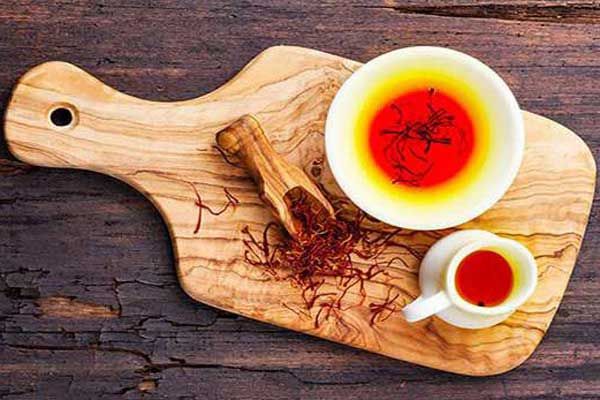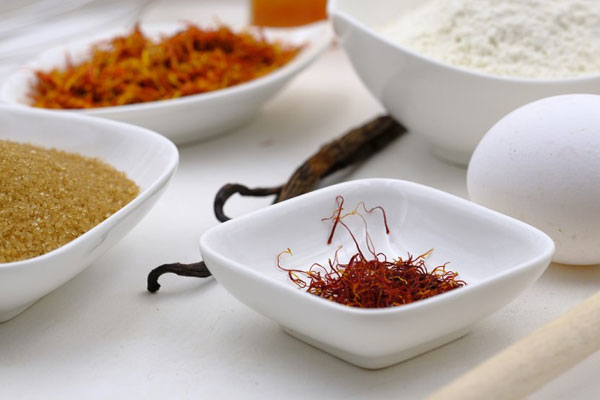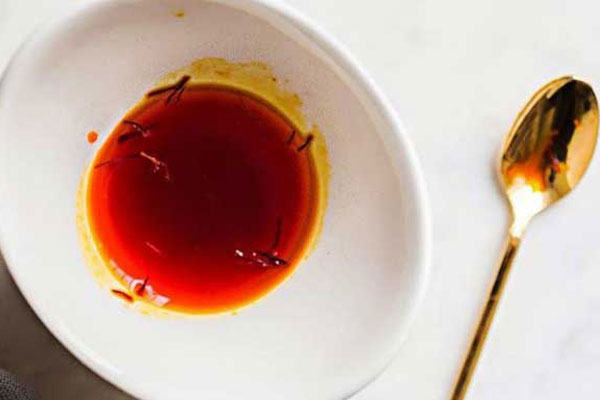
What Can You Use Saffron for?
For over three millennia, saffron has been used for a diverse array of purposes. Long before the development of the science of modern day medicine, the king of spices was mentioned in the writings of Hippocrates and Galen as an effective medicine for colds, coughs, insomnia, flatulence, heart trouble, among others.
As one of the most valuable spices on the planet, saffron can be used for cooking, dyeing, and as a potent medicine for the treatment of a myriad of health issues. Let’s check them out in detail.
-
As a Dye
Do you know that a single grain of saffron is enough to color 10 gallons of water? Among other things, saffron is used as a dye, and in fact, it is the source of the bright orange color of the robes worn by Buddhist priests in India. But the dye is not only used for fabrics. The rich red-orange color is also used to dye a wide range of foods in many cultures from Asia, Arabia, to Europe and the Americas.

-
Spice
The most popular use of saffron is as a spice. With a strong, earthy aroma, saffron is used to add a unique flavor to foods in Indian, Mediterranean, Asian, European, and Arabian cuisines. It is widely used in countries where it is produced including Greece, Azerbaijan, Israel, Spain, Turkey, India, Italy, Mexico, China, Egypt, Morocco, and France, as well as the US, England, Germany, and Sweden where production is at a very small scale.

-
As Medicine
Saffron is chock full of minerals and vitamins as well as over 150 volatile compounds, antioxidants, phytochemicals among others. This impressive array of compounds makes saffron a potent source of healing. It is exceedingly high in manganese, and also contains high concentrations of vitamin C, magnesium, iron, vitamin B6, and potassium.
-
Boosts Nerve Function
Saffron contains B6, an important vitamin for proper nerve function. Saffron may help supply the nervous system the vitamin B6 it needs to work optimally while protecting against degenerative nervous disorders like Parkinson’s disease.
-
Enhanced Bone Strength
Saffron contains several organic compounds and minerals, some of which have been associated with increased uptake of minerals such as calcium. Calcium is extremely important for bone health and many other processes in the body. By increasing calcium uptake, the body can have access to more calcium for increased bone mineral density, resulting in healthier and stronger bones and helping to prevent bone disorders such as osteoporosis among others.
-
Relieves Inflammation
When used topically in creams, oil, or massage, the organic compounds in saffron can help relieve inflammation, soothing and relaxing sore muscles and aching joints. It can be used to relieve pain from sports injuries, gout, arthritis, and other inflammatory problems. The antioxidants in saffron can also help speed up the healing process when applied topically to wounds and bruises.
-
For The Prevention of Cold
When mixed with milk, saffron can serve as a stimulant tonic that is applied topically over the forehead for cold relief.
-
Increased Vigor
Saffron can also help increase sexual performance. A pinch of saffron added to a glass of milk can be taken at bedtime to serve as a natural aphrodisiac.
There is so much you can do with saffron. It is an excellent spice, can be used as a dye and also works wonders for the health.


